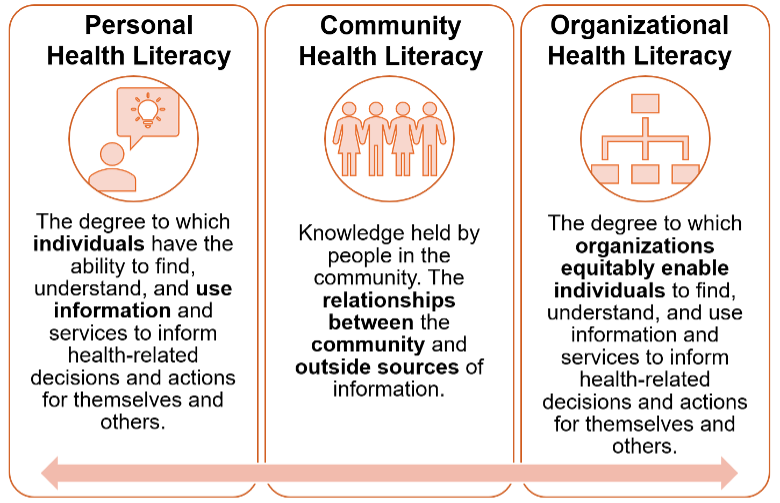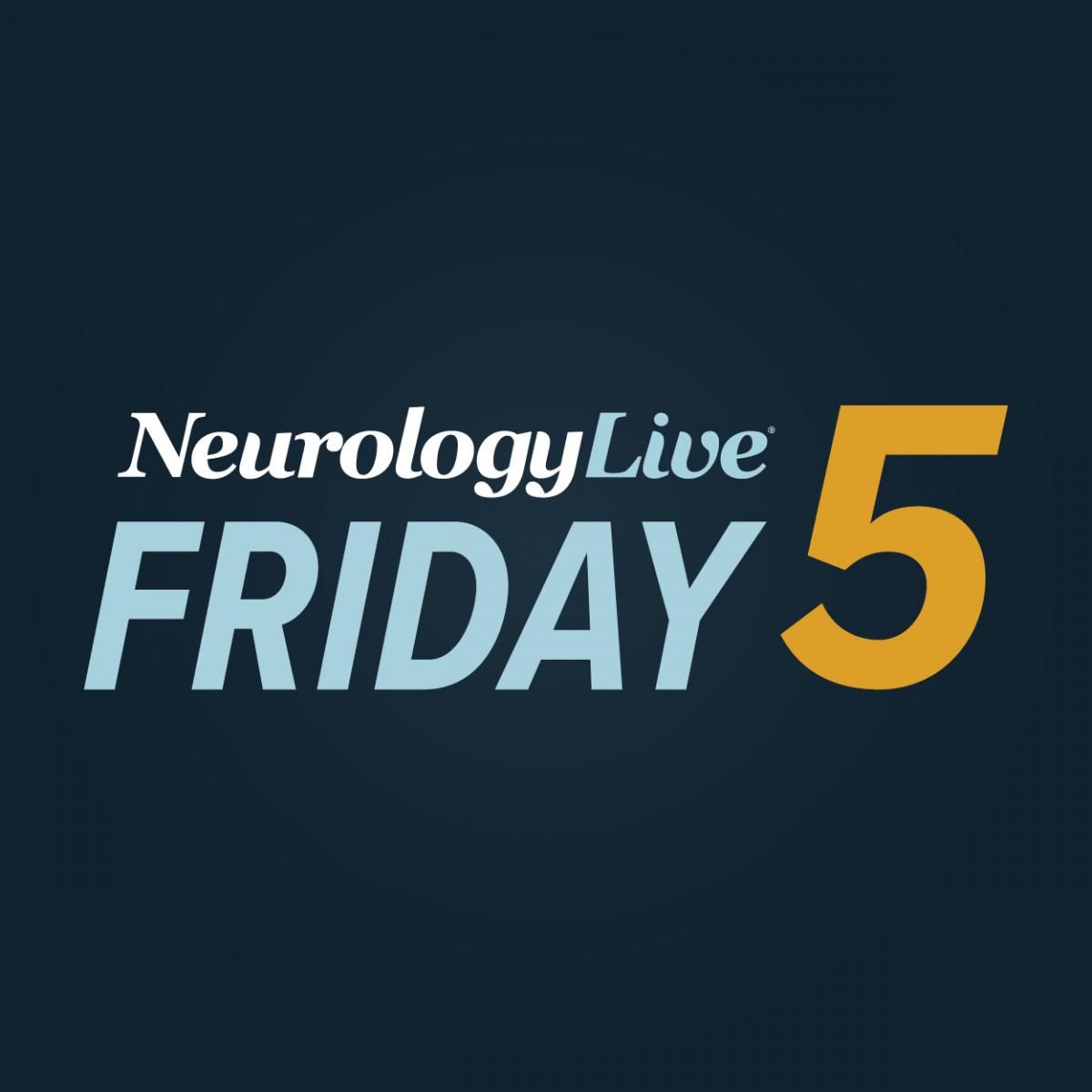Blog
Article
Advancing Equity and Inclusion: Health Literacy for the MS Community and Beyond
Author(s):
Elizabeth Miller, MA, the manager of health literacy at the National MS Society, discussed the impact of health literacy in the multiple sclerosis community.
Elizabeth Miller, MA
Credit: LinkedIn

Health literacy impacts every individual – it is our ability to find, understand, and use information to make informed health decisions. In today’s fast-paced world filled with information-, misinformation-, and disinformation-overload, where healthcare inequities create health disparities and barriers to care, health literacy is both a social risk, as well as a social determinant of health.1 Addressing health literacy is an integral component of shaping an equitable system prepared to care for individuals with various needs, identities, and abilities.
To best serve those living with and affected by multiple sclerosis (MS), the National MS Society (the Society) launched a health literacy initiative in October 2022. Working collaboratively across its cross functional teams, health literacy strategies are bridging the gap between the information, resources, and services provided by the Society and the needs and preferences of the people that we serve.
What is health literacy?
“Health literacy occurs when health information and services created for the public match people’s capacity to find, understand, and use them.”2 This means that people have access to understandable health information when they need it, and use that information to make decisions.
Anyone can struggle with health literacy. Even individuals with strong fundamental literacy skills, such as reading, writing, speaking, and interpreting thoughts, can struggle with health literacy when they are sick, scared, stressed, overwhelmed, in pain, or managing complex situations. Health literacy is not a fixed trait. Health literacy skills can fluctuate due to life experiences and the intricacy of information.
According to the U.S. Department of Education, 36% of Americans lack the skills they need to properly manage their health and navigate the healthcare system. Only 12% of the population have proficient health literacy skills.3
- Individuals with low health literacy:4
- Have increased visits to the emergency room5
- Have increased hospital stays6
- Are less likely to follow treatment plans7
- Face higher mortality rates8
These adults face difficulties in common health tasks such as following medication dosage instructions and understanding nutrition labels.
Limited health literacy skills are evident across racial and ethnic groups. However, the percentages increase in Black, Hispanic, and non-white identifying individuals. Persons with lower education levels, the uninsured or those enrolled in Medicaid or Medicare, those living in poverty, and adults over 65 are all more likely to have below basic or basic health literacy skills.3
Health literacy is understood in three main concepts: personal health literacy, community health literacy, and organizational health literacy (Fig. 1).
Personal health literacy is the degree to which individuals can find, understand, and use information and services to inform health-related decisions and actions for themselves and others.
Community health literacy is the knowledge held by people in the community. It involves the relationships between the community and outside sources of information.9
Organizational health literacy is the degree to which organizations equitably enable individuals to find, understand, and use information and services to inform health-related decisions and actions for themselves and others.10
All three influence each other.
Fig. 1 The types of health literacy.

Health literacy not only affects those who struggle with health information but has vast economic impacts. According to Shahid et al.,11 “Limited health literacy is considered a key source of economic inefficiency in the U.S. healthcare system. It is estimated that inadequate health literacy adds an additional $106 to $238 billion cost to the health care system representing 7-17% of all personal healthcare expenditures.”
Health Literacy and MS
As a chronic and progressive disease, MS can have substantial effects on one’s life. Its wide variety of symptoms can be difficult to manage, especially without proper healthcare and treatment.
A systematic literature review completed in 2021 found “the concept of health literacy in patients with MS is defined as a dynamic and multidimensional concept that its main attributes extracted include health information evaluation, understanding disease and its related issues, reading skills and capacity to use knowledge”.12 Research shows that while people living with MS have higher than average MS knowledge, their health literacy, resilience, and quality of life are below average, suggesting that disease knowledge is not associated with other health outcomes. This indicates that knowledge about the disease may be a poor predictor of self-efficacy and MS symptom severity.13
These studies illustrate the necessity to create content, programs, and services tailored to equip those affected by MS with the tools they need to actualize their health knowledge.
Studies also show that:
- Higher levels of education are protective against MS disability progression.14
- The ability to read and comprehend, interact with health personnel, and interact with peers are precursors to health literacy. These skills result in improved self-care, health promotion, medication adherence, and decreased use of healthcare services.12
These studies highlight the correlation between education and effective health literacy skills for those impacted by MS.
Becoming a Health Literate Organization
A key takeaway from the National MS Society’s 2021 Black MS Experience Summit stated,
“A shared experience of underrepresentation in the healthcare system, research, explicit and implicit bias, and structural and institutional racism necessitates a space where ideas are freely shared, solutions are found, and individual and community strength can be leveraged to take back the power in our own healthcare. Absent these opportunities for collective action, our individual journeys will continue to include delays in diagnosis and starting a DMT, poor treatment adherence, and suffering in silence if we are not able to own our health journey by asking for what we need when we need it.”
This feedback illustrates the potential for poor health outcomes when health literacy and equity are not addressed. It highlights the dire need for organizations to prioritize health literacy and equity to rectify health disparities causing severe effects on many communities.
Our mission at the National MS Society is to empower people affected by MS to live their best lives. To live their best lives, they need information that they understand and can apply. That is why health literacy is so critical to the work we do.
Health literacy as an equity initiative aims to impart streamlined, audience-specific resources to those in need while supporting healthcare professionals to provide the best culturally competent care possible.
To become a health literate organization, we used the Agency for Healthcare Research and Quality’s (AHRQ) ten attributes of health literate health care organizations to guide our work.15 We identified action steps that align with the attributes and integrated them into our functional strategy.
This fiscal year we are focusing on the following steps:
- Integrating health literacy best practices in content review and creation. This includes:
- Bringing readability levels down to Grade 8 or below
- Using plain language
- Clearly defining medical terms
- Training staff on health literacy: What is it and how does it apply to their roles?
- Establishing a baseline of audience feedback through standardized survey questions
- Working cross-functionally across the Society to create holistic approaches to better improve resources and communication with the MS community
What Can You Do?
Individuals affected by MS must have the information, tools, and resources available to maintain their best health. It is imperative that they have healthcare providers who are empathetic, patient, and prioritize partnering with their patients to create health plans that are realistic, sustainable, and culturally aligned to their unique identity and situation.
There are many ways to become a health literate provider:
1. Get educated on health literacy!
- Learn about the teach back method and checking for patient understanding
- Use plain language when speaking with patients and writing health materials
- Gain skills in cultural competency
2. Simplify forms and materials
- Provide forms in various languages and formats
- Use plain language
- Solicit audience feedback in the creation of materials
3. Create a welcoming health care environment
- Encourage questions
- Proactively assure patients help is available to fill out forms or go over information
4. Advocate for your employer to become a health literate space
Conclusion
Organizations such as the National MS Society must advocate for simpler healthcare systems, the removal of barriers to care, and the sharing of resources to alleviate health disparities and foster better health. As a healthcare organization striving to advance health equity, investing in health literacy is crucial to achieving our mission of a world free of MS. Creating audience-informed content and services, supporting allied health care professionals, and training staff on how to support health literacy are steps we are taking to become a health literate organization. In doing so, we hope to contribute to the health literacy of those we serve while positively impacting the American healthcare landscape. We call upon all health care professionals in this moment to join us in investing in health literacy and creating a more equitable system for all. Take your first step and find support through the AHRQ's and Centers for Disease Control and Prevention's health literacy toolkits.
REFERENCES
1. Agency for Healthcare Research and Quality. (2024, March). AHRQ's Role in Improving Health Literacy. AHRQ. https://www.ahrq.gov/health-literacy/about/index.html
2. Agency for Healthcare Research and Quality. (2023, March). About Health Literacy. AHRQ. https://www.ahrq.gov/health-literacy/index.html
3. Kutner,M.,Greenberg,E.,Jin,Y.,and Paulsen,C.(2006).The Health Literacy of America’s Adults: Results From the 2003 National Assessment of Adult Literacy (NCES 2006–483). U.S.Department of Education.Washington,DC: National Center for Education Statistics. https://nces.ed.gov/pubs2006/2006483.pdf
4. Office of Readiness and Response. (2020, September 25). Infographic: Health literacy. Centers for Disease Control and Prevention. https://www.cdc.gov/orr/infographics/healthliteracy.htm
5. Griffey, R. T., Kennedy, S. K., D’Agostino McGowan, L., Goodman, M., & Kaphingst, K. A. (2014). Is low health literacy associated with increased emergency department utilization and recidivism? Acad Emerg Med, 21(10), 1109-1115
6. Baker, D. W., Parker, R. M., Williams, M. V., & Clark, W. S. (1998). Health Literacy and the Risk of Hospital Admission. Journal of General Internal Medicine, 13(12), 791–798.
7. Williams, M.V., Baker, D. W., Parker, R. M., & Nurss, J. R. (1998). Relationship of functional health literacy to patient’s knowledge of their chronic disease: A study of patients with hypertension and diabetes. Arch Intern Med, 158, 166-172.
8. Baker, D. W., Wolf, M. S., Feinglass, J., Thompson, J. A., Gazmararian, J. A., & Huang, J. (2007). Health literacy and mortality among elderly persons. Arch Intern Med, 167(14), 1503-1509.
9. World Health Organization (2022). Health literacy development for the prevention and control of noncommunicable diseases: Volume 1. Overview. (p. 5). Geneva: World Health Organization. https://www.who.int/publications/i/item/9789240055339
10. Centers for Disease Control and Prevention. (2023, July 11). What is health literacy? Centers for Disease Control and Prevention; U.S. Department of Health & Human Services. https://www.cdc.gov/healthliteracy/learn/index.html
11. Shahid, R., Shoker, M., Chu, L. M., Frehlick, R., Ward, H., & Pahwa, P. (2022). Impact of low health literacy on patients’ health outcomes: A multicenter cohort study. BMC Health Services Research, 22(1). https://doi.org/10.1186/s12913-022-08527-9
12. Dehghani, A. (2021). Health Literacy in Multiple Sclerosis patients: A Concept Analysis Using the Evolutionary Method. Journal of Caring Sciences, 10(1), 49–56. https://doi.org/10.34172/jcs.2021.010
13. Claflin, S. B., Klekociuk, S., Campbell, J. A., Bessing, B., Palmer, A. J., van der Mei, I., & Taylor, B.V. (2021). Association between MS-Related Knowledge, health literacy, self-efficacy, resilience, and quality of life in a large cohort of MS community members: A cross sectional study. Multiple Sclerosis and Related Disorders, 54, 103158. https://doi.org/10.1016/j.msard.2021.103158
14. Dobson, R., Rice, D.R., D'hooghe, M., Horne, R., Learmonth, Y., Mateen, F.J., Marck, C.H., Reyes, S., Williams, M.J., Giovannoni, G., Ford, H.L. Social determinants of health in multiple sclerosis. Nat Rev Neurol. 2022 Dec;18(12):723-734. doi: 10.1038/s41582-022-007355. Epub 2022 Nov 11. PMID: 36369488; PMCID: PMC9651126
15. Agency for Healthcare Research and Quality. (2020, November). Ten attributes of Health Literate Health Care Organizations. AHRQ. https://www.ahrq.gov/health-literacy/publications/ten-attributes.html
Newsletter
Keep your finger on the pulse of neurology—subscribe to NeurologyLive for expert interviews, new data, and breakthrough treatment updates.





